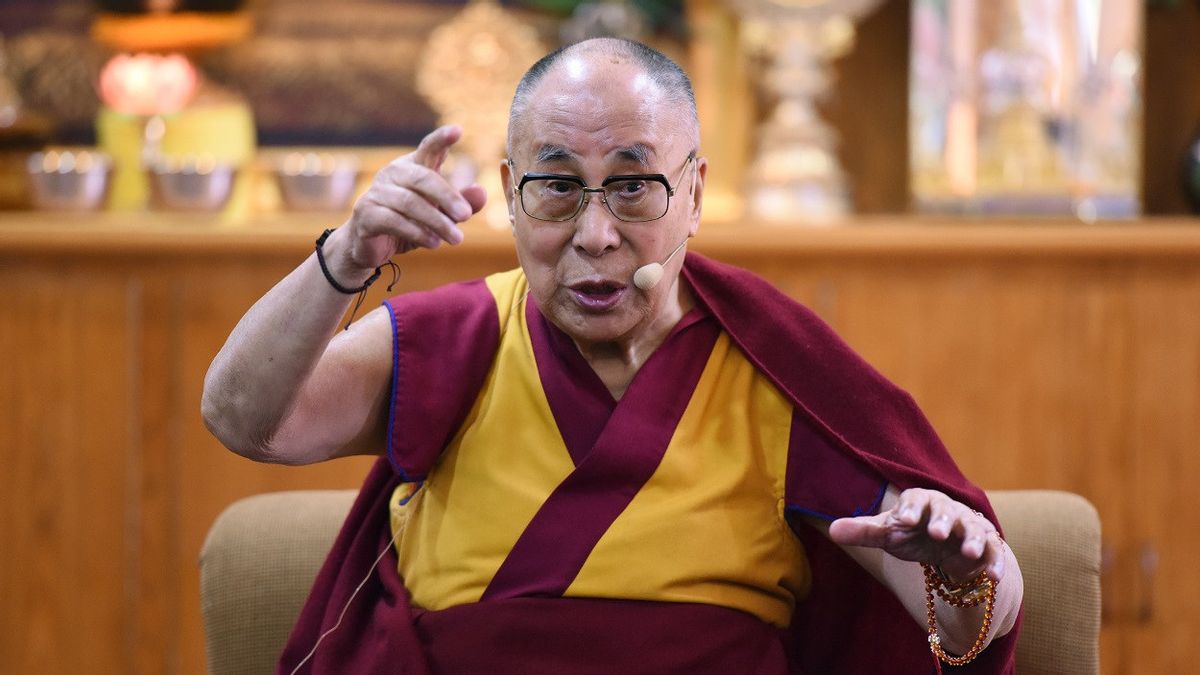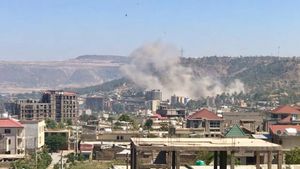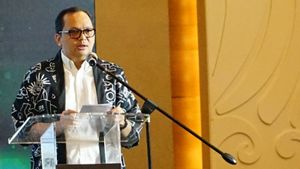JAKARTA - Tibet's spiritual leader, the Dalai Lama, criticized Chinese leaders on Wednesday saying they do not understand the different cultural diversity there, as well as too much control by the main Han ethnic group.
At the same time, the Dalai Lama has also said he is not against 'Chinese brothers and sisters' as fellow human beings, broadly supporting the ideas behind Communism and Marxism.
The 86-year-old Dalai Lama took part in an online press conference held in Tokyo, answering a question about whether the international community should consider boycotting the Beijing Winter Olympics because of the oppression of minorities, including those in the western region of Xinjiang.
"I know the leaders of the Communist Party since Mao Zedong. Their ideas are good. But sometimes they exercise a lot of extreme and tight control," the Dalai Lama explained from his headquarters in India, adding he thought things would change in China under a new generation of leaders, citing Reuters November 10.
"Regarding Tibet as well as Xinjiang, we have our own unique culture, so the Chinese Communist leaders are narrow-minded, they don't understand the diversity of different cultures," he continued.
Noting that China is not only made up of Han ethnic people but also other different groups, he added: "In reality, there is too much control by the Han people."
China took control of Tibet after its troops entered the region in 1950 in what it calls "peaceful liberation". Tibet has since become one of the most restricted and sensitive areas in the country.
Beijing regards the Dalai Lama, who fled to India in 1959 after a failed uprising against Chinese rule, as a dangerous 'divider' or separatist. He has worked for decades to attract global support, for linguistic and cultural autonomy in his remote and mountainous homeland.
The Dalai Lama says he widely supports the ideas of Communism and Marxism, laughing as he relates an anecdote about how he once thought of joining the Communist Party but was persuaded by a friend.
When asked about Taiwan, the epicenter of escalating military tensions in the region, he said he thought the island was a true storehouse of ancient Chinese culture and traditions, since the mainland is now too politicized.
"Economically, Taiwan gets a lot of help from mainland China. And Chinese culture, culture, including Buddhism, I think mainland Chinese brothers and sisters can learn a lot from Taiwan brothers and sisters," he said.
Although the Dalai Lama has said he has no plans to meet China's leader, Xi Jinping, he has expressed his desire to revisit old friends as he ages but will avoid Taiwan as relations between the country and China are 'quite delicate'.
SEE ALSO:
"I prefer to live here in India, in peace," he said, praising India as a center of religious harmony, despite complaints from Muslims in recent years.
However, in the end, he believed that all religions had the same message.
"All religions carry messages of love and use different philosophies of views. So now the problem is politicians, in the case of some economists using these religious differences. So now, religion is also politicized - so that's the problem," he concluded.
The English, Chinese, Japanese, Arabic, and French versions are automatically generated by the AI. So there may still be inaccuracies in translating, please always see Indonesian as our main language. (system supported by DigitalSiber.id)


















